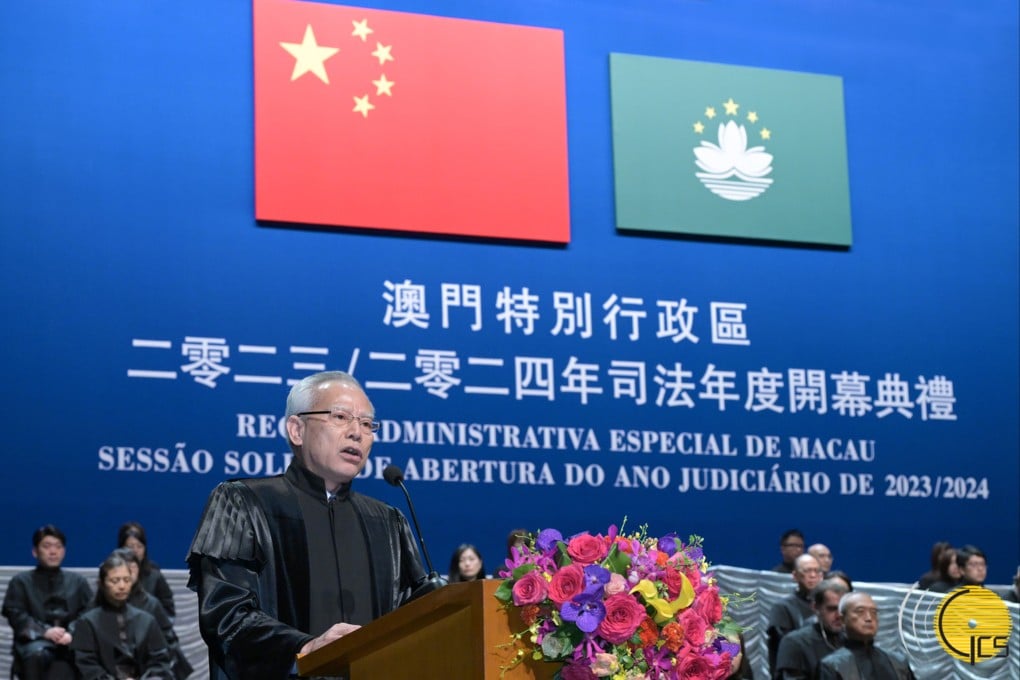Can a judge lead Macau? Sam Hou-fai’s lack of track record fuels doubts
- Sam expected to be sole candidate in October’s leadership poll, but observers question whether he has ability to transform city’s economy

A mainland Chinese-born justice widely expected to be the only candidate in Macau’s coming chief executive election might become the city’s first leader without a business background and his lack of a strong social network and governing experience could hamper his ability to lead, observers say.
Sam Hou-fai, president of Macau’s Court of Final Appeal, said on Thursday he was considering running in the election in October after incumbent leader Ho Iat-seng announced he would not seek a second term, citing unspecified health concerns.
Born in Zhongshan, Guangdong province, in 1962, Sam became a lawyer on the mainland before studying law in Portugal. He returned to Macau in 1993, became a local judge in 1997 and was appointed as head of Macau’s top court in December 1999 when the city returned to Chinese rule.
If elected, Sam would also become the first leader not born in Macau. Ho and his two predecessors – Edmund Ho Hau-wah and Fernando Chui Sai-on – all hail from highly influential families with deep roots in the city.
Whoever takes up the top job has his work cut out for him. In its latest five-year plan, Beijing tasked the gambling hub with diversifying its economic base and becoming a “world-class tourism and leisure centre”. It should also transform itself into a cultural exchange base and platform to serve commerce and trade between China and Portuguese-speaking countries, the central government said.
In his recent visit to Macau, Xia Baolong, director of the Hong Kong and Macau Affairs Office, asked the city to maximise its business advantages, economic foundations and cultural inclusiveness to bolster growth.
